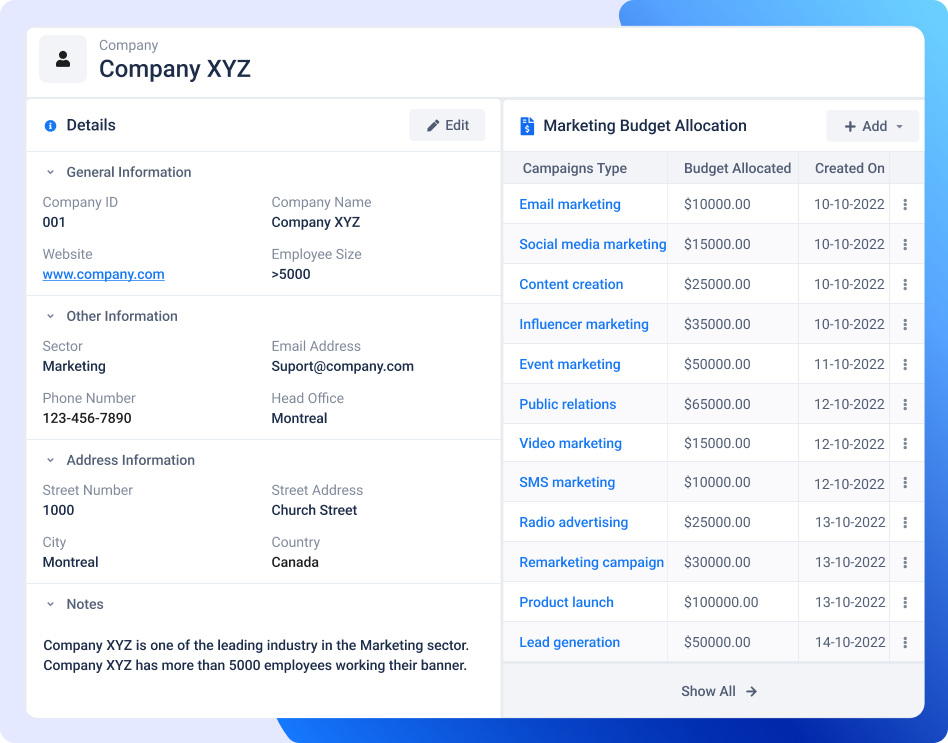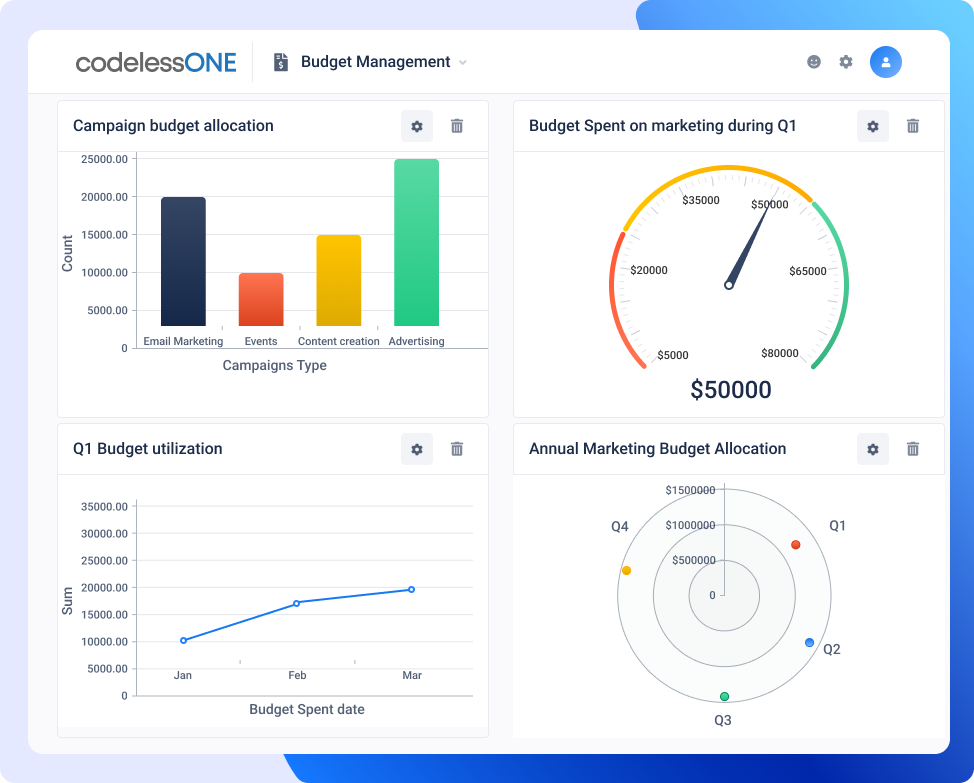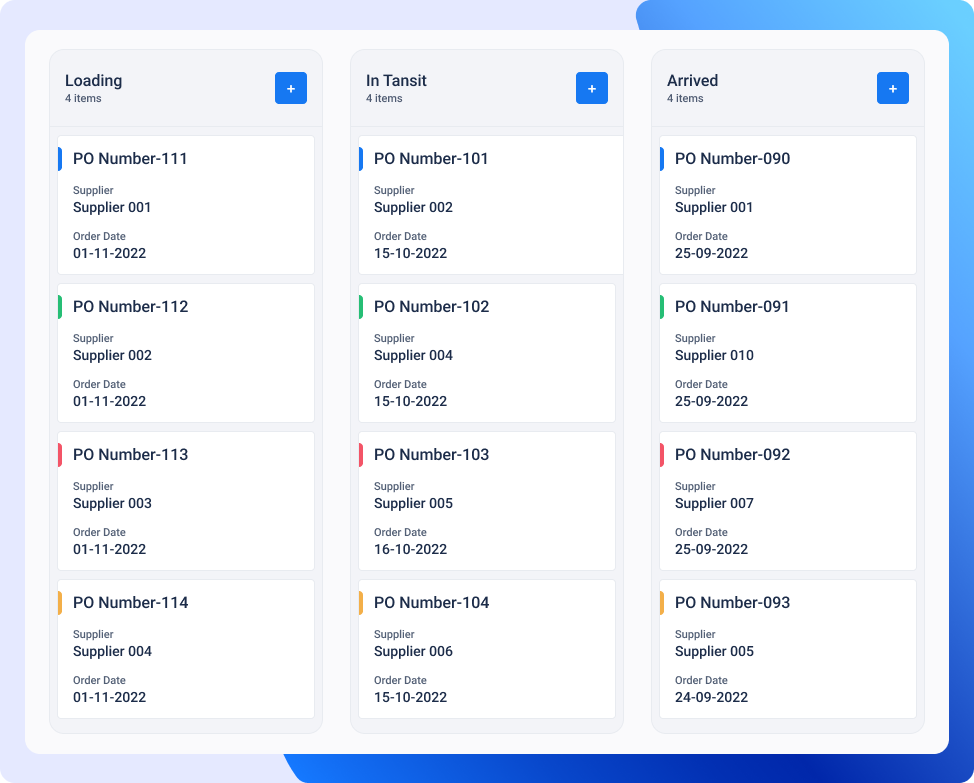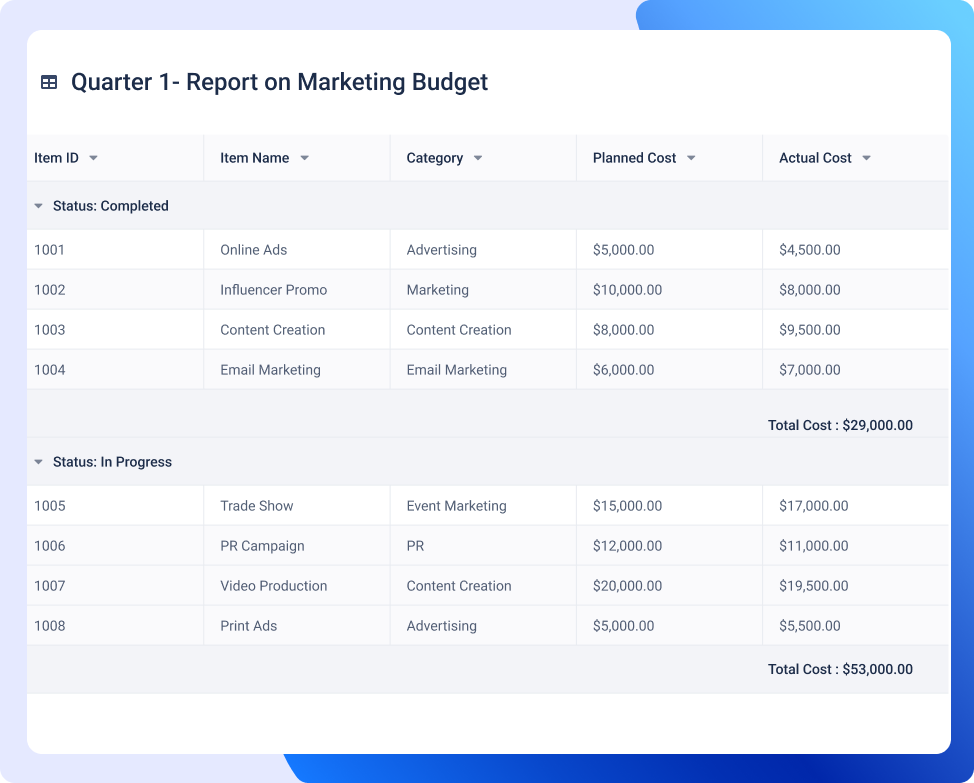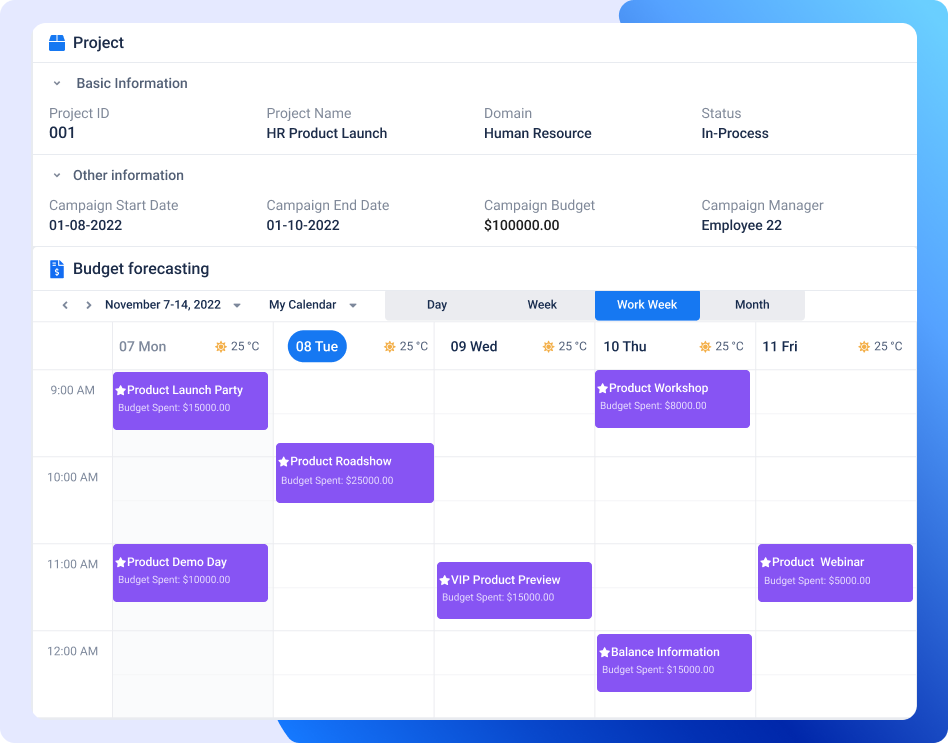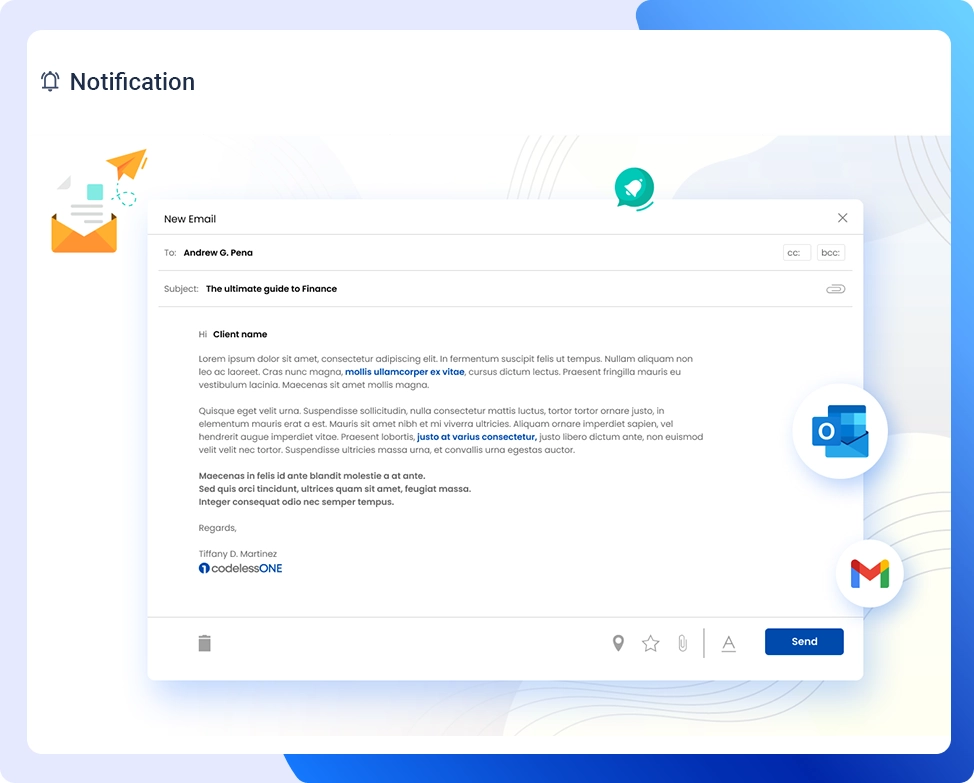Categories
Marketing budgeting software helps organizations plan and manage their marketing expenses.
- Overview of budget data and metrics.
- Facilitate monitoring of marketing expenses and budget allocation.
- Supports budget planning and organization by giving an at-a-glance view of expenses and tasks.
- Identify and address budget over spending.
- Visualize the progress and status of marketing tasks and projects.
- Drag and drop interface to move tasks between different stages of the marketing process.
- Easily see which tasks are in progress, completed, or delayed.
- Assign tasks to specific team members and monitor their progress.
- Track and analyze the marketing budget spent over time to identify and analyze trends.
- Create customized reports to gain insight into specific areas of the marketing budget.
- Compare budgeted vs. actual marketing expenses to identify over or underspending.
- Use reports to plan and optimize future marketing budget allocation.
- Quickly browse and search budget items.
- Facilitate organization and sorting of budget items by various criteria.
- Filter budget items by different parameters.
- Quickly find specific budget items.
- Stay updated on marketing expenses and budget changes.
- Send reminders about budget deadlines or approvals.
- Send important updates to the team members
- Optimize budget management and planning.
- Track Budget by providing real-time updates and alerts.
Benefits and use cases of marketing budget management software:
Budget planning:
Create and manage budgets for marketing campaigns and initiatives, such as advertising, events, or content creation.
Budget Forecasting:
Forecast spending and revenue based on historical data and other factors. Allocate resources and make data-driven decisions
Budget Allocation:
Collaborate and communicate effectively across teams and departments.
Campaign management:
Manage and track the progress of marketing campaigns.
Seamless collaboration:
Collaborate and communicate effectively across teams and departments.
Active monitoring:
Real-time tracking of expenses and budget status.
Resource optimization:
Measure return of investments in marketing campaigns.





